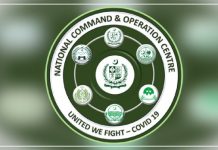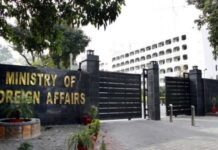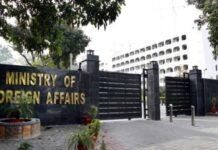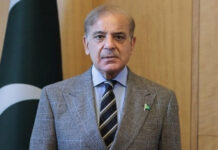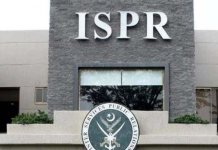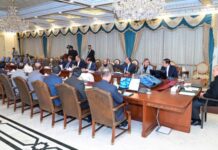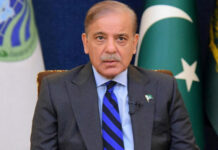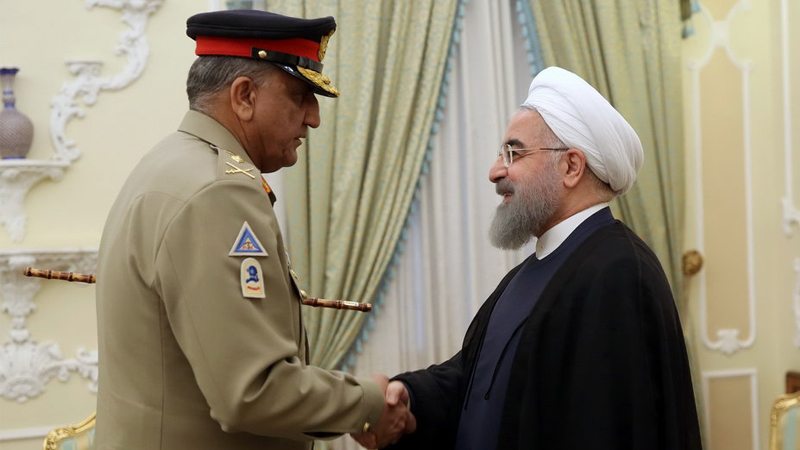
Chief of Army Staff (COAS) General Qamar Javed Bajwa met Iranian military and civilian leadership during his ongoing visit to Iran. He held meeting with Iranian Chief of General Staff (CGS) Major General Muhammad Bagheri at General Staff Headquarters where he was presented guard of honour. Delegation-level talks were held on the occasion.
The COAS also held meetings with Iranian Foreign Minister Javad Zarif at the Ministry of Foreign Affairs and Iranian President Hassan Rouhani at the Presidential Palace.
The Iranian leadership thanked the COAS for his visit and acknowledged Pakistan’s sacrifices and achievements in war against terror, contributions towards regional peace and the important positive role that Pakistan has playing in this regard.
During the meetings, the COAS discussed issues related to geo-strategic environment, defence and security and economic cooperation at bilateral as well as regional level. Afghan situation, growing threat of ISIS in the region and Pak-Iran border security also came under discussion.
The COAS termed the Pak-Iran border as a border of peace and friendship and called for better security management at the border to deny its exploitation by the terrorists. Both sides agreed to further the proposals for its formalisation.
The COAS said that Pakistan and Iran were two brotherly neighbours with shared history, culture and religion. Both armies also have history of defence collaboration and cooperation which has great mutually benefiting potential for its enhancement, he added.
Gen Bajwa has since the early days of his tenure worked on improving relations with Tehran. In this regard, he had met Iranian Ambassador to Pakistan Mehdi Honardoost several times over the past few months – at least three of which were made public.
The move for improvement in ties has been necessitated by evolving regional situation particularly the emergence of the militant Islamic State group as a major security threat and US plans for an open-ended stay in Afghanistan, which both sides see as detrimental for their interests in the region.
Noor Institute of Strategic Studies Tehran Director General Dr Sadollah Zarei, speaking at the Islamabad Policy Institute, had said: “Trump’s new policy for the region has made it all more important for the two neighbours to cooperate.”
Iran was one of the few countries to voice support for Pakistan after the latter was severely criticised by President Trump while unveiling Washington’s new policy for the region. Later Foreign Minister Khawaja Asif toured Tehran as part of his visit to regional countries for consultations on Trump’s policy.
Dr Zarei said there was a strong desire in Tehran for better relations with Pakistan.
Analysts believe the start of a military dialogue between Pakistan and Iran will grant credibility to Pakistan’s policy of neutrality in the Middle East even if they aren’t immediately able to make major strides towards better relations.
Published in Daily Times, November 7th 2017.

